Top 10 Most Affordable Electric Vehicles
Written by: Segun Akomolafe
Electric vehicles are no longer luxury items for the wealthy. With prices dropping steadily and technology improving rapidly, EVs have become increasingly accessible to average consumers. Today, we’re exploring the most budget-friendly electric vehicle options on the market that deliver excellent value without compromising on quality or performance.
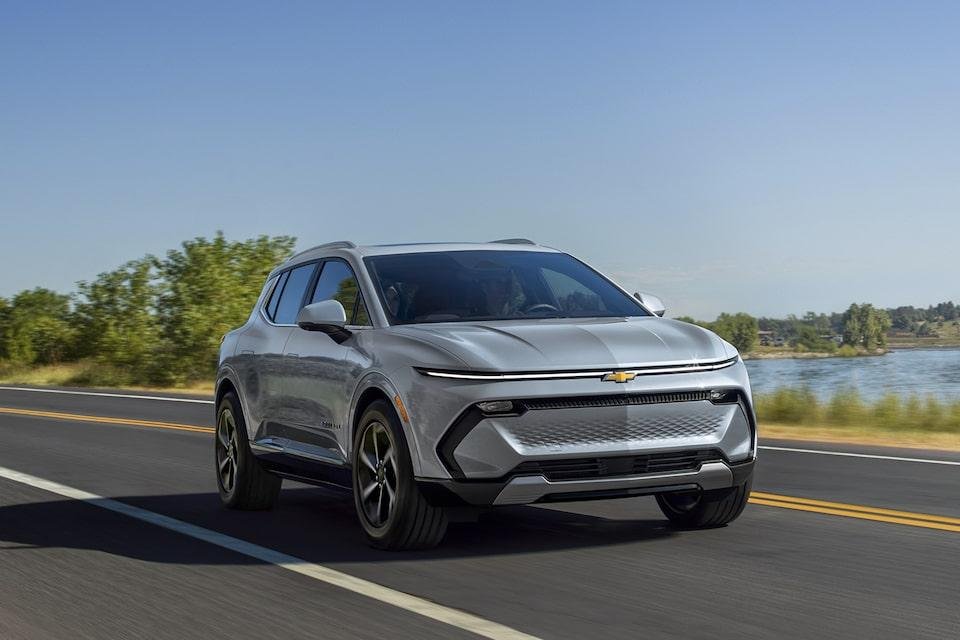
What Makes an EV Affordable?
When considering an affordable electric vehicle, look beyond just the sticker price. True affordability encompasses:
- Purchase price: The upfront cost remains the most immediate hurdle for many buyers, but falling battery costs are helping manufacturers offer more competitive pricing.
- Total cost of ownership: EVs typically cost 30-40% less to maintain than gas vehicles. With fewer moving parts, no oil changes, and regenerative braking that reduces wear on brake pads, your maintenance savings add up significantly over time.
- Available incentives: Federal tax credits of up to $7,500 are available for many EVs, while state and local incentives can further reduce your effective purchase price by thousands.
Here’s a quick look through the top 10 budget friendly and most affordable EVs you can consider this year:
1. Chevrolet Bolt EUV
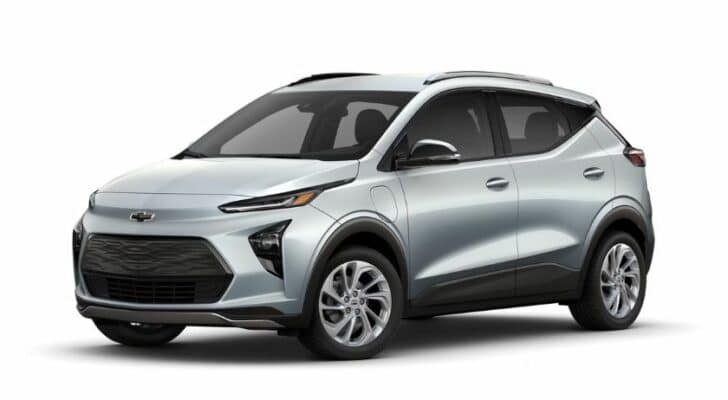
The Chevrolet Bolt EUV is a unique Chevrolet EV that comes with a starting price of $27,800 and a range per charge of 247 miles. Its key features include: Super Cruise hands-free driving capability, spacious interior, and fast charging capacity.
Pros:
- Exceptional value for money
- Comfortable, SUV-like stance with good interior space
- Decent tech package including optional Super Cruise
Cons:
- Charging speed maxes out at 55kW (slower than competitors)
- Interior materials feel budget-oriented
- No all-wheel drive option
The Bolt EUV takes our top spot by offering remarkable range and features at a price point that makes EV ownership accessible to most Americans. Its crossover styling provides the practicality you need without the premium price tag.
2. Chevrolet Bolt EV
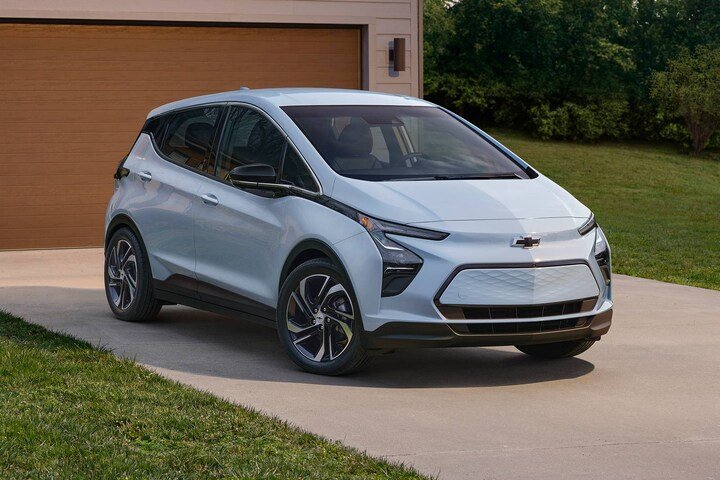
The Chevrolet Bolt EV is another special Chevrolet EV with a starting price of $26,500 and a range per charge of 259 miles. Some of its key features include: Compact design, one-pedal driving, and 10.2-inch touchscreen.
Pros:
- Lowest-priced EV with over 250 miles of range
- Nimble handling perfect for urban environments
- Surprisingly spacious interior despite compact exterior
Cons:
- Basic styling might not excite design-conscious buyers
- DC fast charging isn’t standard on base model
- Tight rear seat for taller people
The Chevy Bolt EV proves that practical, long-range electric transportation doesn’t require a luxury budget. It’s the definition of EV practicality and a perfect entry point for first-time electric car buyers.
3. Nissan Leaf

The Nissan Leaf is an exotic EV model with a starting price of $28,000 and a range per charge of 149-212 miles (depending on battery). Some of its key features include: ProPILOT Assist, e-Pedal one-pedal driving, and familiar hatchback design.
Pros:
- Established model with proven reliability
- User-friendly interface for EV newcomers
- Comfortable, quiet ride quality
Cons:
- Uses CHAdeMO charging standard (less common than CCS)
- Base model’s range is limited compared to competitors
- Lacks the latest tech features of newer EVs
As a pioneer in mass-market EVs, the Leaf continues to offer solid value with its accessible price point and straightforward approach to electric driving.
4. Mini Cooper SE

The Mini Cooper SE has a starting price of $30,000 and a range per charge of 114 miles. Its key features include: Automotive Iconic styling, sporty handling, and premium interior design.
Pros:
- Most affordable European EV
- Zippy acceleration and nimble handling
- High-quality interior materials
Cons:
- Limited range makes it best for urban dwellers
- Small rear seats and cargo area
- Premium options quickly increase the price
The Mini Cooper SE proves that going electric doesn’t mean sacrificing driving enjoyment. While its range is limited, it’s perfect for city dwellers who value style and driving dynamics over long-distance capability.
5. Hyundai Kona Electric

The Hyundai Kona EV comes with a starting price of $33,500 and a range per charge of 258 miles. Its key features include: Crossover styling, robust tech package and an impressive 10 year warranty.
Pros:
- Impressive range at this price point
- Well-equipped with standard safety features
- 10-year battery warranty provides peace of mind
Cons:
- Limited availability in some states
- Tight rear seat legroom
- Base model lacks some desirable features
The Kona Electric delivers exceptional range for the money and wraps it in a practical crossover package that many buyers prefer over traditional hatchbacks.
6. Kia Niro EV

The Kia Niro EV is a special EV with a starting price of $39,500 and a range per charge of 253 miles. Its key features include: Crossover practicality, generous cargo space, and a comprehensive safety suite.
Pros:
- Spacious interior with versatile cargo options
- Well-tuned suspension provides comfortable ride
- Strong suite of standard technology features
Cons:
- Somewhat bland exterior styling
- Higher starting price than some competitors
- Limited availability outside ZEV states
Families will appreciate the Niro EV’s practical approach to electrification, offering plenty of space, range, and features that make daily life easier.
7. Volkswagen ID.4
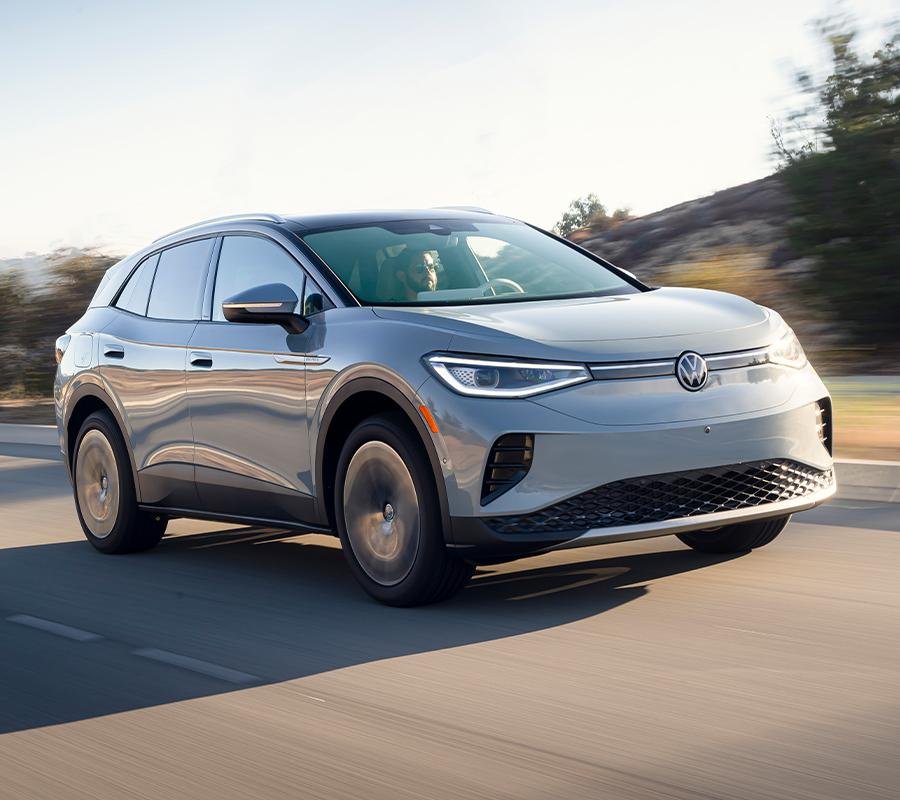
The Volkswagen ID.4 is an iconic EV with a starting price of $38,988 and a range per charge of 275 miles. Its key features include: a durable SUV design, minimalist interior, and a bidirectional charging capability.
Pros:
- Spacious, airy cabin with excellent visibility
- Solid build quality and refined ride comfort
- Three years of free charging at Electrify America stations
Cons:
- Touch-sensitive controls can be frustrating
- Infotainment system has occasional lag issues
- AWD models command significant price premium
The ID.4 brings German engineering to the affordable EV segment, with a focus on practical family transportation and comfortable long-distance cruising.
8. Hyundai Ioniq 5
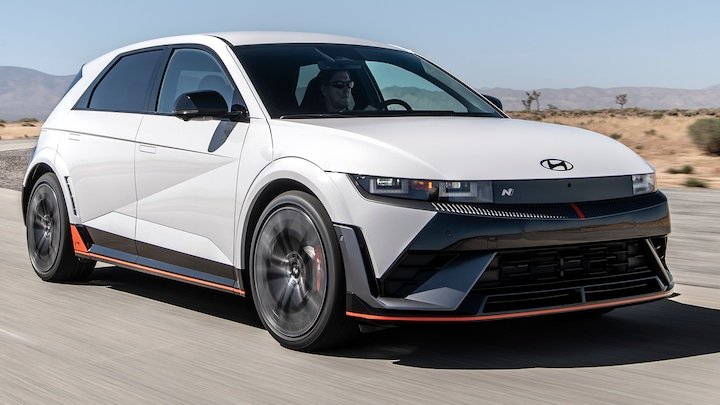
The Hyundai Ioniq 5 is available with a starting price of $41,250 and a range per charge of 220-303 miles (depending on configuration). Its key features include: Ultra-fast 800V charging, retro-futuristic design, and flexible vehicle interior.
Pros:
- Can charge from 10% to 80% in just 18 minutes
- Flat floor and movable center console create versatile interior space
- Stand-out styling differentiates it from other EVs
Cons:
- Higher starting price than some competitors
- Complex tech features may overwhelm some users
- Limited availability at dealers
The Ioniq 5 pushes the boundary of “affordable,” but its cutting-edge charging technology and versatile interior make it worth the slight premium.
9. Ford Mustang Mach-E
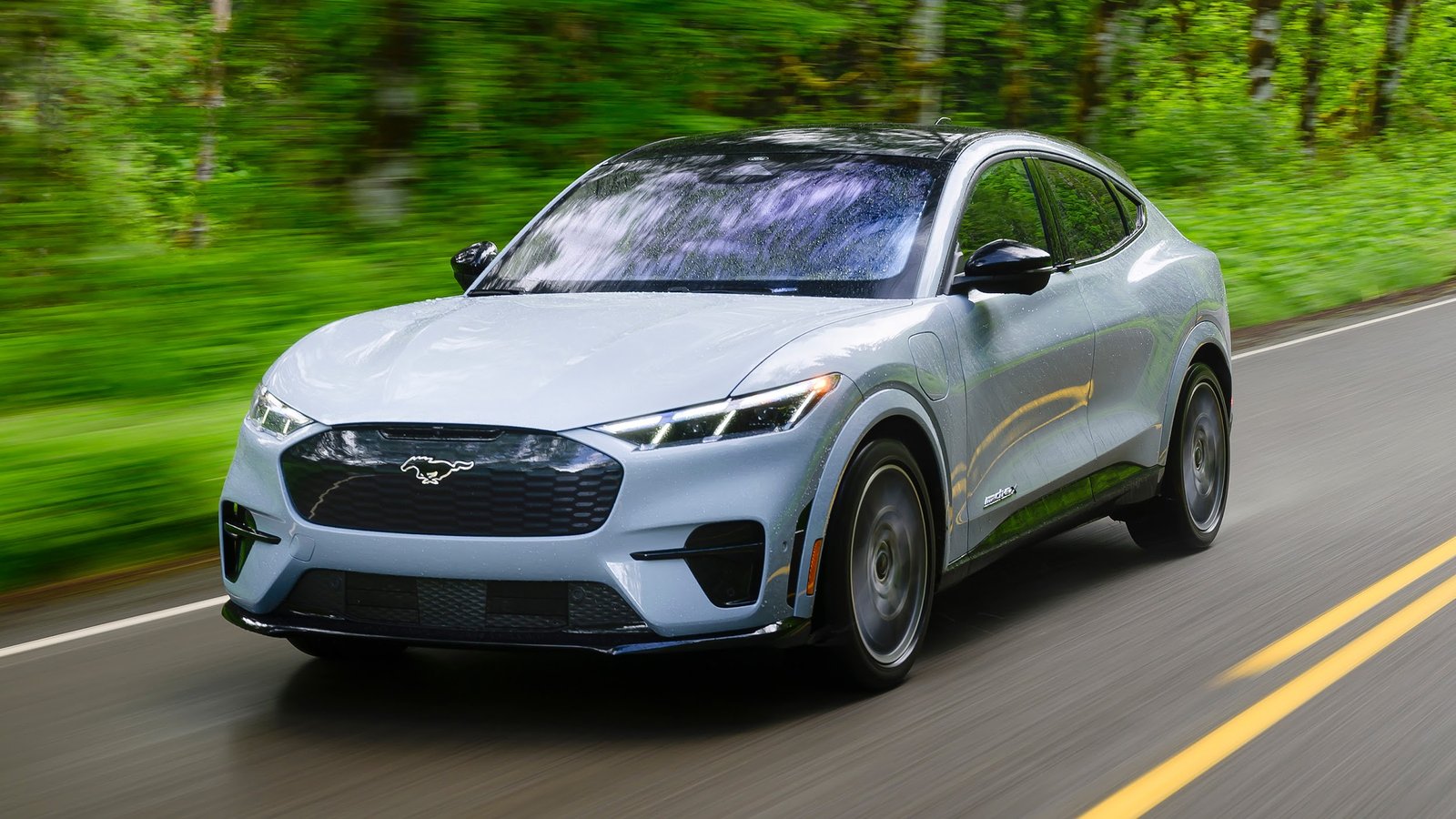
Ford Mustang EV
The Ford Mustang EV comes with a starting price of $42,900 and a range per charge of 247-314 miles (depending on configuration). Its key features include: Performance-oriented driving dynamics, familiar Mustang brand, and advanced driver assistance.
Pros:
- Impressive performance even in base configurations
- BlueCruise hands-free driving on compatible highways
- Over-the-air updates continue to improve features
Cons:
- Higher starting price
- Popular configurations often sell out quickly
- Large central screen controls too many functions
The Mustang Mach-E proves that affordable EVs can deliver excitement along with practicality, bringing the Mustang spirit into the electric age.
10. Tesla Model 3 Base Model
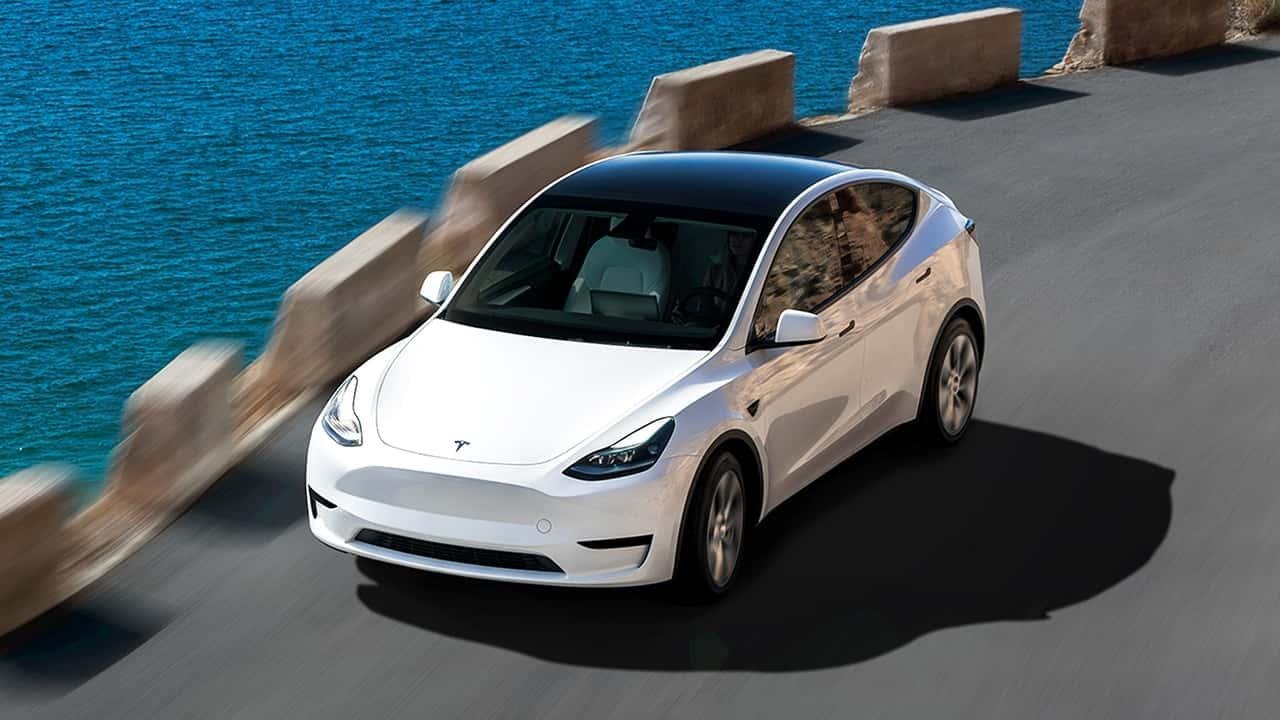
Tesla model 3 has a starting price of $42,490, a range per charge of 272 miles, and its key features include: a minimalist interior, an autopilot system, and Tesla supercharger network.
Pros:
- Unmatched charging infrastructure
- Regular software updates add features
- Strong resale value
Cons:
- Minimalist interior isn’t for everyone
- Service centers can be distant depending on location
- Base model is frequently backordered
The Model 3 remains the benchmark for electric sedans, and while it’s at the upper end of our affordability spectrum, its comprehensive package and supercharger access provide substantial value.
Factors to Consider When Buying an Affordable EV
To avoid going off budget, it is important that you consider the battery range, charging infrastructure, maintenance cost and appreciation value of the EV you are planning to go for.
Battery Range and Degradation
Consider your daily driving needs and add a 20% buffer for unexpected trips and future battery degradation. Most batteries retain 80-90% of their capacity after 100,000 miles, but climate extremes can accelerate degradation.
Charging Infrastructure
Your charging experience depends heavily on your living situation:
- Homeowners with garages can install Level 2 chargers for $500-1,500
- Apartment dwellers should research nearby public charging options
- Frequent travelers should prioritize models with extensive fast-charging networks
Maintenance Costs
While EVs eliminate many traditional maintenance items, they aren’t maintenance-free:
- Tire rotation remains important (and may be needed more frequently due to EV weight)
- Brake fluid and coolant systems still require periodic service
- Battery health checks are recommended annually
Resale Value
Not all EVs depreciate equally:
- Models with established reputations (Tesla, Chevy Bolt) tend to hold value better
- Vehicles with longer range generally depreciate more slowly
- EVs with active battery thermal management typically provide better longevity
How to Maximize Savings with Your Electric Vehicle
To maximize savings with your EV, it is advisable that you consider the available tax credits. Then, you should avoid charging your vehicle everyday and you should place it on an insurance plan.
Available Tax Credits and Incentives
The federal EV tax credit provides up to $7,500 for qualifying vehicles, but availability depends on:
- Vehicle’s final assembly location (must be North America)
- Battery component sourcing
- Manufacturer sales volume
Don’t forget state incentives, which can add thousands more in savings. Some utilities even offer special EV charging rates or installation rebates.
Charging Strategies to Reduce Costs
Smart charging habits can significantly reduce your operating costs:
- Charge during off-peak hours (typically overnight) when electricity rates are lowest
- Utilize free charging stations at workplaces, shopping centers, and public facilities
- Avoid frequent DC fast charging, which may cost more and can accelerate battery degradation
Insurance Considerations
Electric vehicles often cost more to insure due to higher repair costs, but you can minimize this by:
- Shopping multiple insurers for EV-specific discounts
- Bundling home and auto policies
- Considering usage-based insurance programs that reward safe driving
Conclusion
The affordable EV market has never been more exciting or accessible. Our top recommendations for different needs:
- Best overall value: Chevrolet Bolt EUV – combining range, features, and affordability
- Best for urban dwellers: Mini Cooper SE – perfect for city life with style to spare
- Best for families: Volkswagen ID.4 – space and comfort at a reasonable price
- Best for tech enthusiasts: Hyundai Ioniq 5 – cutting-edge features without luxury pricing
As battery technology continues to improve and production scales up, expect even more affordable options in the coming years. The transition to electric mobility is accelerating, making now an excellent time to make the switch.
FAQ Section
This section contains the answers to some of the frequently asked questions on electric vehicles:
Q: How much can I really save with an EV?
A: The average EV owner saves $800-1,000 annually on fuel and maintenance costs compared to gas vehicles, with higher mileage drivers saving even more.
Q: What if I need to drive long distances?
A: Plan routes using apps like PlugShare or A Better Route Planner, which map charging stops based on your specific vehicle’s range and charging capabilities.
Q: How long do EV batteries really last?
A: Most modern EV batteries are designed to last 10-15 years or 150,000-200,000 miles before significant capacity loss affects usability. Many manufacturers offer 8-10 year battery warranties.
Q: Are affordable EVs safe?
A: Yes. Many affordable EVs earn top safety ratings, with their low center of gravity (due to battery placement) providing excellent stability, and their simplified powertrains eliminating many potential failure points.
Q: Can I install a charger in my condo or apartment?
A: Increasingly yes. Many states now have “right to charge” laws that prevent HOAs and landlords from unreasonably blocking charger installation, though you’ll need to work with building management.
